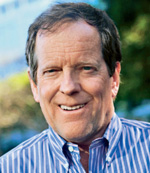sierraclub.org - sierra magazine - january/february 2010 - create: burger roulette


Create | The Politics of Tomorrow
By Carl Pope

One year into the Obama administration, it's clear that "change we can believe in" depends on much more than who inhabits the Oval Office. The rot in our system is not solely political, but also ideological and moral. And progress will require shifting attitudes about public policy that have held sway since the Reagan era.
Take the hamburger. An investigation by the New York Times last October revealed that mass-market burgers are not necessarily "ground beef." Instead, they can be a sometimes lethal assortment of cattle byproducts, mixed by huge companies like Cargill to achieve the desired fat concentration (26 percent) at the lowest price--with no one taking responsibility for the safety of the final product. Tens of thousands of people are stricken each year by E. coli poisoning because slaughterhouses and packers routinely ignore basic safety precautions. Fixing the problem would be easy and affordable, and yet--nothing changes.
This stasis persists for an issue that, unlike global warming, is not mired in partisan politics. Neither Republicans nor Democrats want grabbing a quick lunch to be a game of Russian roulette. So when government can't deal effectively with a problem as straightforward as food safety, how will it face up to the hard stuff like climate change?
In the case of ground beef, the slaughterhouses could easily test their meat for contamination. Many do, but the tests vary greatly in scope. Companies that blend the meat aren't required to test it beforehand; slaughterhouses don't like testing, because if contamination is found, it has to be reported to the government. Retail giant Costco, which grinds its own meat, tests the beef trimmings from each supplier before mixing them. After Costco's food safety director was quoted in the Times as saying, "Tyson will not supply us. . . . They don't want us to test," Tyson relented and consented to let Costco test its meat.
The U.S. Department of Agriculture knows that the industry won't test on its own, but it won't mandate such testing for either the companies that grind the mystery meat or those that blend it. For that reason, if someone dies from eating a contaminated hamburger, it can be very difficult to trace the problem back to its source.
Why won't the USDA require testing? The Times quoted Dr. Kenneth Petersen, assistant administrator of the department's Food Safety and Inspection Service: "I have to look at the entire industry," Petersen said, "not just what is best for public health."
That quote perfectly encapsulates the belief system that has spread like a virus for 30 years in our society--that nothing can be allowed to get in the way of driving down the prices of raw materials to fatten profit margins.
What would happen if we returned to a world in which hamburger was just a ground-up piece of beef? It would cost about 30 cents more per pound, or 7.5 cents more for a Quarter Pounder from McDonald's. Imagine two lines of burgers, one labeled "ground chuck, fully tested" and the other "assorted beef byproducts from untested facilities known to routinely violate safety standards." Would you pay a few pennies extra for the former?
When the USDA proposed a nonbinding guideline suggesting that processors test their ingredients for E. coli before grinding, the meat lobby insisted that companies be allowed to design their own safety programs to avoid what the American Association of Meat Processors called "more of the agency's 'command and control' mind-set." That's industry code for honest enforcement of laws that protect the public and the environment, usually contrasted with voluntary self-regulation by business. The result has been children's toys contaminated with lead, pesticides in our drinking water, and toxic coal ash disposed of like household trash.
The safety net America adopted after Upton Sinclair first exposed slaughterhouses' unsanitary practices in his 1906 muckraking novel The Jungle is badly frayed--and a change of administration in Washington is not enough to repair it. We need to revitalize some old ideas as new conventional wisdom, and a good place to start would be "Safety first."
Carl Pope is the executive director of the Sierra Club. E-mail carl.pope@sierraclub.org.
Photo by Kira Stackhouse